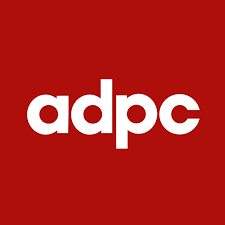
Asian Disaster Preparedness Center - موظف/ة
ADPC is an autonomous international organization established for scientific, educational, developmental, and humanitarian purposes with a vision of safer communities and sustainable development through disaster risk reduction and climate resilience in Asia and the Pacific. Established in 1986 as a technical capacity-building center, ADPC has grown and expanded its role to serve scientific, educational, developmental, and humanitarian purposes. ADPC employs a wide range of professional expertise typically required for Disaster Risk Reduction (DRR) and Climate Resilience (CR).
ADPC develops and implements cross-sectoral projects/programs on the strategic themes of Risk Knowledge and Geoinformatics, Policy and Institutional System, Effective Localization for Resilience, Climate Services, Resilient Planning and Implementation, Preparedness and Anticipatory Action, Nature based Solutions, Financing for Resilience, Resilient Recovery, Food and Water Security, Disaster Risk Finance Insurance, Health Risk Management, Urban & Infrastructure Resilience, Private Sector Engagement, and ADPC Knowledge Academy. Our strategic themes are complemented and underpinned by the cross-cutting themes of gender equality and social inclusion, disaster and climate innovations, and regional and transboundary cooperation.
Through its work, ADPC supports the implementation of the Sendai Framework for Disaster Risk Reduction 2015–2030, the Sustainable Development Goals (SDGs), the New Urban Agenda, the United Nations Framework Convention on Climate Change, the agenda defined at the World Humanitarian Summit in 2016, and other relevant international frameworks.
Department Introduction
The Preparedness and Climate Action (PCA) Department of ADPC focuses on enhancing the preparedness, climate action, and adaptation capacities of governments, response organizations, volunteers, non-governmental organizations, the private sector, communities, and other traditional and non-traditional actors within the Disaster Risk Management and Climate Resilience Ecosystem. It emphasizes the importance of locally-led adaptation strategies as a critical component of effective climate action while striving to strengthen the capacity of institutions and at-risk communities to achieve faster, more efficient, and climate-resilient disaster recovery. The department collaborates with these actors to ensure that regional, national, sub-national, and local disaster preparedness, response, recovery, and climate action frameworks and implementation plans are developed and implemented well before disaster strikes, prioritizing climate resilience and integrating strategies to reduce risks and build resilience against future climate-related hazards
This consultancy is established to strengthen knowledge management and documentation under the Institutional Strengthening through Preparedness and Inclusive Response in India (INSPIRE) Program - a collaborative initiative by the Asian Disaster Preparedness Center (ADPC), the National Disaster Management Authority (NDMA), the National Disaster Response Force (NDRF), and state institutions in Odisha, Gujarat, and Kerala. The program aims to enhance institutional systems for disaster preparedness and climate action at national and state levels, while contributing to regional cooperation in the Bay of Bengal.
Through INSPIRE, ADPC works closely with national and state-level stakeholders to promote risk-informed planning, strengthen local capacities, and support sustainable disaster management practices. The program focuses on advancing institutional leadership and technical capacities within strategic government institutions, enabling them to play a central role in managing disasters and responding to climate shocks. It also fosters the development of innovative, data-driven solutions and promotes cross-learning through structured regional collaboration. .
The consultant will support the documentation of processes and lessons learned, consolidate good practices, and facilitate internal knowledge exchange. They will develop accessible knowledge products that promote institutional learning, program outreach, and policy engagement - ensuring alignment with the priorities of national and state partners.
Working under the supervision of the Program Lead – PCA, the consultant will contribute to producing practical documentation that supports both internal learning and external communication efforts.
Expected Outputs:
With the overall guidance of the ADPC Program lead and program team, the consultant will deliver the following outputs:
Preferred Qualifications:
If you have the necessary qualifications and want to join a successful team, apply for the job.: